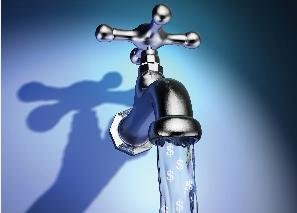IIoT stands for “the Industrial Internet of Things†and refers to the devices and technology necessary to transmit data between machines or mechanisms using a wireless network. The water industry is gearing up for a new evolution in water conservancy and monitoring. One organization that advancing the cause of IIoT in the water industry is a new non-profit association of members, called Low Power Wide Area Networks (LPWAN). LPWAN is looking to standardize large area networks in the water industry in order to drive connectivity costs down while enabling utilities to detect leaks and read water meters more efficiently.
“A lot of efficiencies could be gained with proper monitoring or sensoring. IIoT networks will significantly reduce the cost of connectivity and make it much easier to drop a sensor in a field and know if you are over-watering or deploy sensors to detect leak detection and conserve more,†explained Hardy Schmidbauer, CEO and co-founder of TrackNet where they are developing end-to-end solutions for LPWAN including the most scalable core network server.
Of course, water is just assumed to be available. People can’t imagine a day without running water. Such a disaster can be avoided with IIoT technology. Since only 1 percent of the water on the planet is fresh and suitable for human consumption, efficiency in the water industry is a huge need. This is where IIoT comes in.
IoT would fix fundamental flaws in water management systems leading to the loss of millions of gallons of water every year. According to an IBM Institute for Business Value report on Fixing the Future: “Essential for health, food, energy, manufacturing and transportation, the global water system is suffering from stress, deteriorating quality, aging and insufficient infrastructure. Managing this critical resource requires a smarter approach to deliver improved outcomes across the water management lifecycle. Using information and analytics, governments, cities, utilities and businesses must take immediate action to deploy a smarter approach to water management to solve the world’s water crisis.â€

